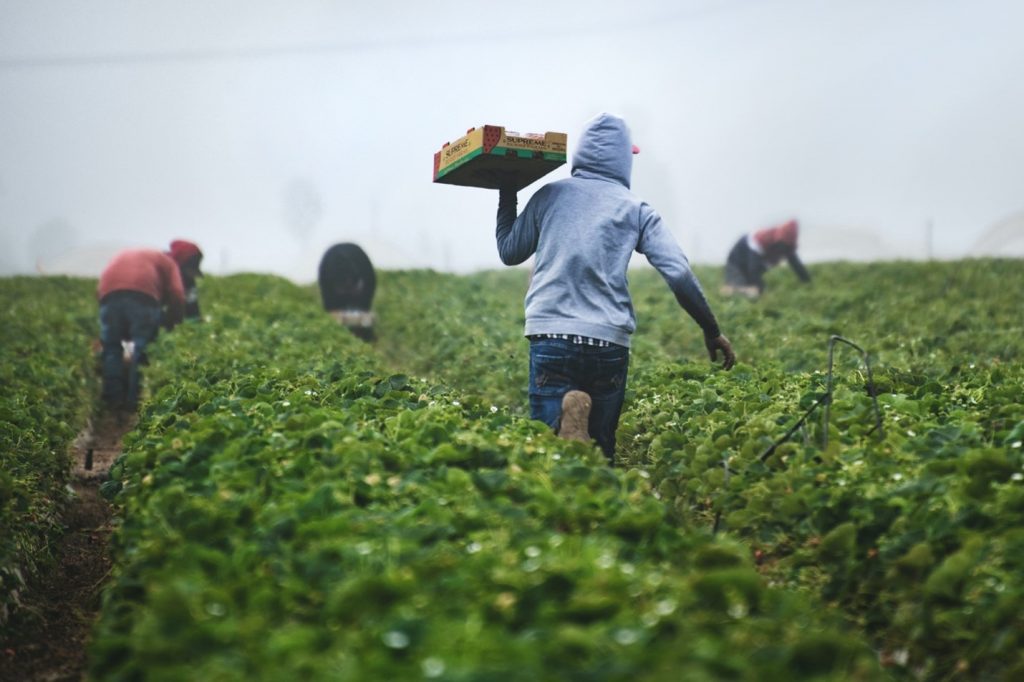Come harvest time, most Australian farmers are on the lookout for seasonal workers (temporary employees), whether it be for fruit-picking, seed-planting or crop-spraying. Farmers are grateful for the labour, and recruits are grateful for the work. But the work itself is a tough row to hoe — with agriculture being one of the nation’s most demanding, and hazardous industries.
The importance of adequate workers’ compensation is vital, as well as being a pro when it comes to farm safety. With recent announcements prioritising the return of seasonal and temporary farmworkers, let’s take a quick refresher on your obligations, duty of care and workers’ comp insurance requirement as an employer.
The current crisis for Australia’s agriculture industry
A current backpacker drought is jeopardising Australian harvest, with over 22,000 more workers are still needed to fill labour shortages across the agriculture industry. Without temporary farmworkers, our nation could see crop losses for farmers and price hikes in supermarkets.
Seasonal and temporary labour has been a lifeline to the Aussie farmers and residents, picking around 80% of the fruit in the nation each year. But pandemic-fuelled travel restrictions have upended the system by depriving farmers of much-needed labour.
While the border remains closed for now, the government is hopeful we will soon be able to move to “stage two” of the international border reopening to bring in skilled workers to fill the shortages.
Keeping seasonal and temporary workers safe on your farm
From a safety point of view, farms are unique. Days are long, with repetitive and physically demanding tasks, often operating dangerous equipment in very hot and humid conditions. While temporary farmworkers are carrying out their duties, you need to maintain a number of practices:
- Providing an induction: Your workers need to be provided with an adequate induction that goes through workplace health and safety duties, policies, procedures and practices, including consultation methods and emergency procedures.
- Providing a safe working environment: All employees have the right to a safe workplace, and you must ensure hazards are reduced where possible, including chemicals, noise, dust, sun exposure and working with animals.
- Know your legal responsibilities: All farmers need to be familiar with the OHS Regulations, Australian Standards and Industry Guides associated with their industry and place of work. You’re responsible, by law, to ensure that any health and safety threats are controlled on your farm.
- Provide adequate facilities: While at work, your employees should be provided with accessible facilities, hygienic toilets and eating areas.
- Always maintain ethical standards and conditions: A number of factors leave farmworkers vulnerable to exploitation, including geographical isolation, limited right and piece-rate conditions. You must be actively maintaining ethical conditions for your workers and always treat workers with respect and care.
Workers’ compensation insurance for temporary employees and farmworkers
Over recent years, the agriculture sector has had one of the highest rates of both fatalities and serious injuries of any industry in Australia. In these instances, worker’s compensation insurance acts to provide a wage replacement and medical benefits to employees injured in the course of employment.
It’s important to know that all employers in Australia are required to have workers’ compensation insurance — and farmers are no exception.
If you don’t have adequate cover for your employee, not only can you face fines and potential prosecution from the law, but you may be forced to pay the cost of compensation out of your own pocket.
What does workers’ compensation insurance cover?
If one of your farmworkers is injured or becomes sick in the course of their labour, workers’ compensation insurance will help them cover:
- Medical expenses: such as emergency room visits, necessary surgeries, and prescriptions. For example, if one of your temporary workers wounds their hand while operating a tractor, workers’ compensation insurance can help cover their hospital visit.
- Rehabilitation costs: this includes ongoing medical care that is necessary because of the injury, like physiotherapy or psychological care. If one of your workers has incurred a back injury due to heavy lifting, it can cover the costs of trips to the physio.
- Loss of earnings: Workers’ comp can help to replace some of your employee’s lost income when they have time off to recover from a work-related injury or illness.
Talk to an expert
Workers’ compensation insurance is compulsory for a reason – especially when it comes to agriculture workers and temporary employees. Still, it can be tricky to determine what level of cover you need and who to turn to for more information. At Western General Insurance we can help you get the right insurance solutions for your workforce, so you know that you’re doing right by your employees (and the law!).
Contact us today to talk to an expert.

